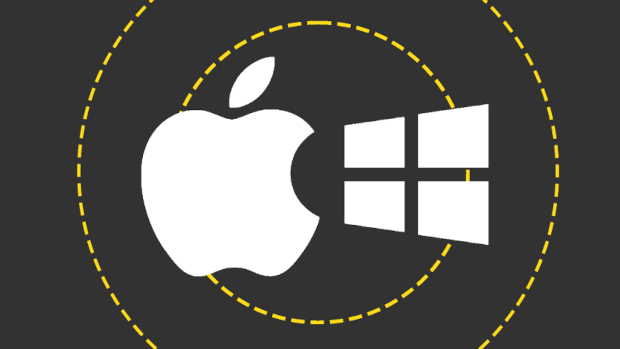
A tale of two Techs
Apple’s share price has taken a battering following news that China is banning iPhone imports. So went the headlines, anyway. The Califonian giant lost some $200 billion (approx €186.9 billion) overnight as it became the highest profile pawn in a US-China trade war.
Well, not quite.
China has, it is true, banned all foreign-made devices being used for work purposes by government employees. However, not only does this fall far short of a ban, it is also not targeting Apple in particular.
More to the point, however, China signalled this move over a year ago as part of a wider strategy to gird the country’s surprisingly weak technological sovereignty.
As for Apple itself, despite falling 6% as the China news broke, the company’s shares are still up 41.97% year-to-date. And share prices are not the be all and end all when it comes to valuing a company anyway. In fact, given the random peregrinations of the market, there is an argument to be made that they are a distraction. Apple’s sales are strong, its brand untarnished, and it had a staggering $62.48 billion (approx. €58.4 billion) in cash on hand for the quarter ending 30 June 2023, which represents a 29.55% increase year-on-year.
It is true that the US and China are both hinting that they may engage in a low intensity trade war, largely but not exclusively around semiconductors, with notable casualties already including Huawei and TikTok. However, China’s move to ban government employees using devices made by foreign manufacturers – in reality, little more than a form of import substitution by the back door – is hardly the beginning of the end for Cupertino.
It’s not just Apple, either. Microsoft, Amazon and Google are all riding high, and even Meta Platforms, whose value cratered when people clapped eyes on the metaverse, has more than recovered. Chip designers Nvidia and Broadcom are raking in cash, and even the ‘beleaguered’ Intel is recovering.
The truth is that Big Tech is rude health. Share prices are near all-time highs (pulling indices higher with them), an industry-wide move from selling software to selling services (and thus enjoying recurring revenue) has buoyed balance sheets, and, unlike fads such as NFTs, hype around AI appears to be threatening to create actual value.
On the flip side…
But while Big Tech is in rude health, start-ups are struggling.
This is no surprise, given today’s macroeconomic environment. The products and services offered by the tech giants are not only an integral part of everyday life, they are produced by cash-rich companies who have no need to bother with debt financing or issuing more shares.
Start-ups, on the other hand, need to get cash wherever they can, whether from investors or from lenders. As interest rates have risen, not only has that made borrowing more expensive, it has also cooled the boots of investors who, just two years ago, were willing to sink cold, hard cash into anything that trundled past (up to and including jpegs of monkeys).
Whatever about simian NFTs, low interest rate environments always result in furious searches for new places to invest – all that cash has to go somewhere, after all, and at zero per cent it’s not going into the bank. Conversely, as rates rise, investing in secure government bonds becomes more attractive, and even leaving money lying in the bank becomes an option.
Voilà! The perfect environment for harming start-ups: reduced access to investor cash, borrowed money too expensive to take, and Big Tech happy to gobble up your customers. According to the Wall Street Journal, US “start-ups are dying, and venture investors aren’t saving them”. A tad apocalyptic, perhaps, but the numbers don’t lie: start-up funding has dropped by 50% year-over-year, Crunchbase has reported.
The picture is no different in Ireland. According to the TechIreland Startup Funding Review, total funding in the first half of 2023 declined by 40% over the first half of 2022, dropping to €460 million.
The news, reported here this week, did contain the germ of something positive, though: so far in 2023, 112 Irish companies fundraised, the highest for many years.
In truth, everyone knows start-ups are risky. They are risky for founders, risky for lenders, risky for investors, and risky for workers. Most fail, some become common or garden small businesses, a few get acquired and, on occasion, a start-up transforms into the next big thing, showering cash on its founders, investors and first workers.
When we think about Tech, often we think of the sector’s behemoths, spraying fire hoses of cash into the mouths of their founders, shareholders and senior staff. It’s perhaps worth remembering, though, that not everyone is Apple or Microsoft.








Subscribers 0
Fans 0
Followers 0
Followers